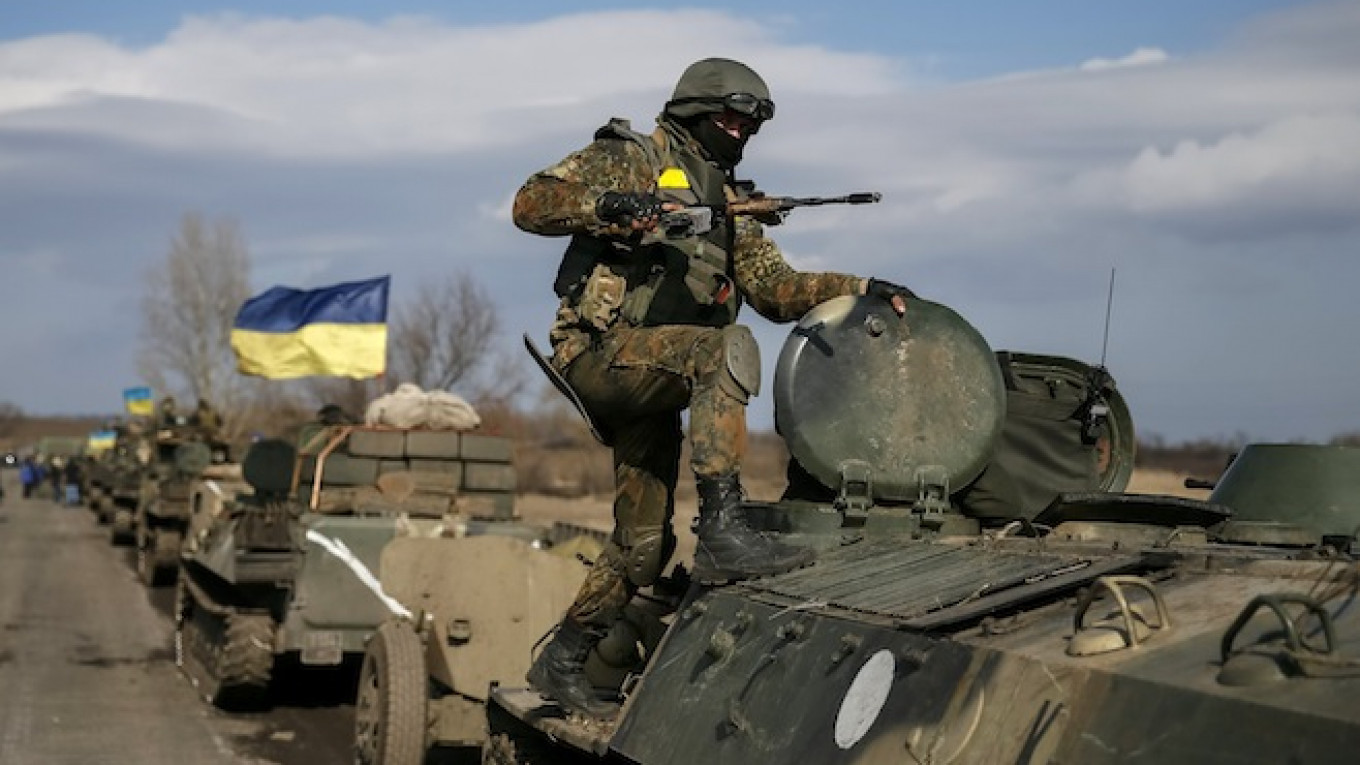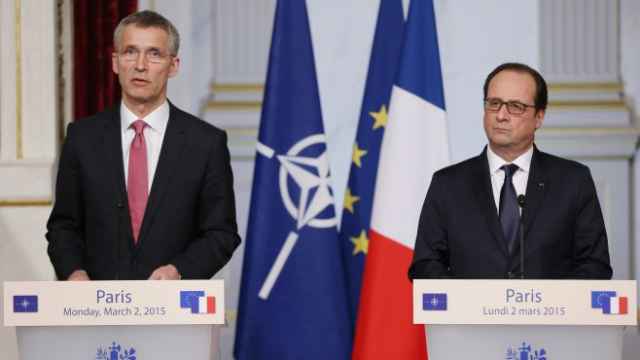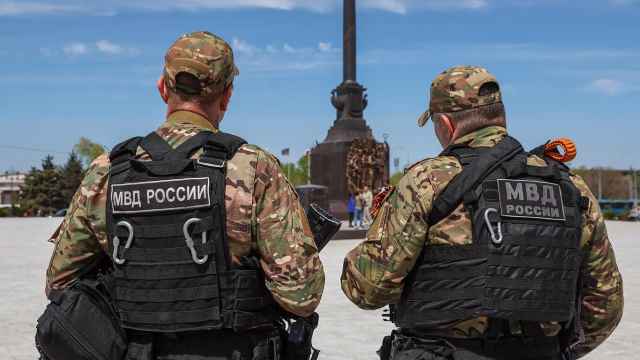Three Ukrainian servicemen were killed and nine wounded as pro-Russian rebels shelled government positions despite a cease-fire deal, the military said on Tuesday, announcing Kiev's highest casualty toll in several days.
The losses underscore the fragility of a two-week-old cease-fire agreement that Ukrainian President Petro Poroshenko has called the last chance for peace between Kiev and the separatists he says are being armed by Russia.
Since the cease-fire went into effect on Feb. 15, fighting has slowed along much of the front line between Ukraine and rebel-controlled territory in the east, but both sides accuse each other on a daily basis of breaking the truce.
A military spokesman said rebels had shelled Ukrainian positions 22 times over the past day.
"An intensification of the enemy's military operations was observed on the evening of March 2. They shot at Pesky with mortar bombs and with an anti-aircraft system at Avdiivka," said Ukrainian military spokesman Anatoly Stelmakh, naming two towns that have suffered heavy damage in the conflict.
Ties between Russia and the West have plummeted to Cold War-era lows over the violence, and Washington and Brussels accuse Moscow of arming the separatists and reinforcing their ranks with Russian troops.
Russia has repeatedly denied the allegations and demanded proof for the charges. Moscow has blamed the United States for pushing the pro-Western government in Kiev into armed conflict with its own people.
Continued violence, including the rebels' takeover of a strategic transport hub in Debaltseve, has slowed implementation of the new Minsk peace deal which outlines the cease-fire, a withdrawal of heavy artillery and monitoring by the OSCE European rights and security watchdog.
The West has pinned hopes on the Minsk agreement, and NATO Secretary-General Jens Stoltenberg told a news conference in Brussels that while "incidents" remained, the overall picture showed that the cease-fire was holding.
"It is important that all sides respect their commitments and that the separatists backed by Russia do not use this pause in the fighting to prepare for a new offensive," he said.
"All heavy weapons have to be moved from the front line in accordance with the Minsk agreements and the OSCE monitors have to have full access to the area to be able to monitor the cease-fire."
The leaders of Germany, Ukraine, France and Germany said on Monday they agreed that the OSCE needed a broader role as observers of the cease-fire agreement and the removal of weapons.
Ukraine's parliament is expected this week to approve a request from Poroshenko for international peacekeepers to monitor the conflict, an idea that has received an icy reception in European capitals.
The rebels have invited members of the media to witness guns being led away from the front line, but the OSCE says it cannot confirm the withdrawal of weapons as they have not been given access to see where some of the guns have been relocated.
A Message from The Moscow Times:
Dear readers,
We are facing unprecedented challenges. Russia's Prosecutor General's Office has designated The Moscow Times as an "undesirable" organization, criminalizing our work and putting our staff at risk of prosecution. This follows our earlier unjust labeling as a "foreign agent."
These actions are direct attempts to silence independent journalism in Russia. The authorities claim our work "discredits the decisions of the Russian leadership." We see things differently: we strive to provide accurate, unbiased reporting on Russia.
We, the journalists of The Moscow Times, refuse to be silenced. But to continue our work, we need your help.
Your support, no matter how small, makes a world of difference. If you can, please support us monthly starting from just $2. It's quick to set up, and every contribution makes a significant impact.
By supporting The Moscow Times, you're defending open, independent journalism in the face of repression. Thank you for standing with us.
Remind me later.






